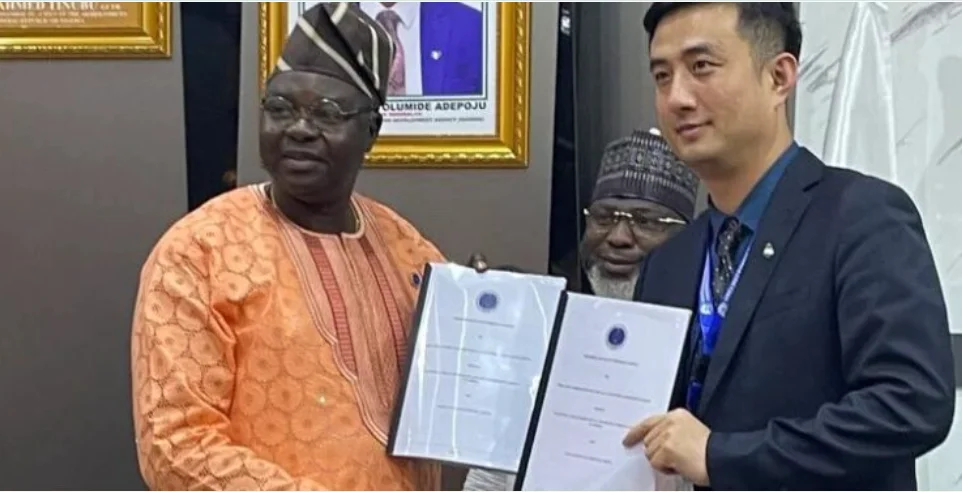The National Space Research and Development Agency (NASRDA) has signed a landmark Memorandum of Understanding (MoU) with leading Chinese satellite company Galaxy Space to deploy Direct-to-Device (D2D) satellite connectivity across Nigeria.
The partnership aims to revolutionise broadband access by enabling smartphones, laptops, and other digital devices to connect directly to satellites, bypassing the need for traditional infrastructure such as cellular towers.
A Major Leap in Space-Based Communications
During the MoU signing ceremony in Abuja, NASRDA Director-General Dr. Matthew Adepoju described the collaboration as a milestone in Nigeria’s space and communications journey.
“With this collaboration, Nigeria is embracing the future of communication with direct satellite connectivity without reliance on traditional terrestrial infrastructure like cell towers,” said Adepoju.
The full deployment of the D2D satellite system is expected to be completed by the end of 2025.
Benefits for Connectivity and Inclusion
Key benefits of the Galaxy Space partnership include:
- Eliminating network blind spots
- Enhancing digital inclusion in rural areas
- Expanding access to digital services
- Improving emergency and remote communications
The D2D system will provide seamless coverage across underserved and unconnected regions, helping bridge Nigeria’s digital divide and support national development goals.
Technology Transfer and Local Capacity Building
In addition to improved connectivity, the agreement with Galaxy Space includes a technology transfer component aimed at empowering Nigerian engineers and researchers.
Highlights include:
- Training Nigerian engineers in satellite design and operation
- Development of locally manufactured communication technologies
- A proposed joint CubeSat project, where Nigerian experts will contribute to design, manufacturing, and mission control
“It is time Nigeria stopped depending entirely on imported tech devices,” Adepoju stressed. “We must begin to develop and produce some of these technologies locally.”
Nigeria’s Edge Over Starlink in D2D Rollout
This partnership positions Nigeria to potentially beat Elon Musk’s Starlink in deploying direct-to-mobile satellite services. While Starlink has plans to roll out D2D services globally, including in Nigeria, it has yet to announce a clear launch date. Currently, Starlink’s direct-to-cell service is only available in six countries: the United States, Canada, New Zealand, Japan, Australia, and Switzerland. By collaborating with Galaxy Space, Nigeria could become the first African country to deploy full-scale D2D satellite connectivity at a national level.
What is D2D Satellite Technology?
Direct-to-Device (D2D) satellite connectivity allows standard digital devices to communicate directly with Low Earth Orbit (LEO) satellites, eliminating dependence on terrestrial base stations.
This next-generation communication system:
- Enhances network reliability in remote locations
- Improves resilience in disaster-prone regions
- Supports national security and critical infrastructure
Galaxy Space, known for its low-cost, mass-produced LEO satellites, has emerged as a key player in commercial satellite broadband, and the Nigeria partnership could serve as a launchpad for broader African deployment.
Nigeria’s agreement with Galaxy Space marks a transformative step toward universal connectivity and homegrown satellite innovation. With deployment expected before the end of 2025, this initiative will not only empower millions of unconnected Nigerians but also position the country as a continental leader in space-based communication technologies.












